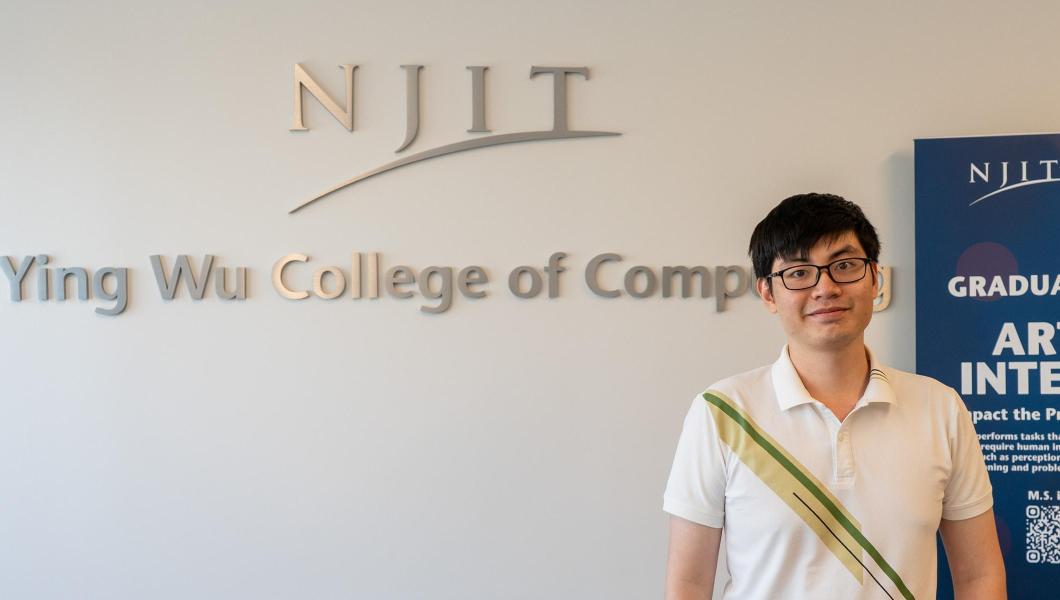Experts at NJIT's Data Science Summit Propose New Paths in Hardware and AI

New kinds of unconventional computer hardware, along with new ways of considering software responsibility, are both necessary if the next wave of data science will do anything more useful for the world than increase corporate profits.
Such were two key messages expressed by experts from IBM and Google at the Data Science Summit this month, hosted by New Jersey Institute of Technology’s Institute for Data Science, in the NJIT @ JerseyCity location which also houses the university's Institute for Future Technologies and various graduate-level courses from Ying Wu College of Computing.
"Computer system performance is far shy of where it needs to be to solve some important problems," said IBM's Manoj Kumar, program director for analytics systems at the T.J. Watson Research Center.
He said the biggest problem is computers just aren't fast enough to keep up with data intake. This happens in fields such as healthcare, manufacturing, retail and throughout the federal government. Kumar noted that in the Department of Homeland Security, computer systems must digest several petabytes of data per hour. The majority of it can't be processed fast enough, and sometimes that means threats can occur.
Kumar said new kinds of hardware such as non-volatile memory, in-memory computing and custom chip fabrication are all examples that could help. These developments happen industry-wide and NJIT experts are in the game, such as in computer engineering professor Shaahin Angizi's laboratory and through the Microfabrication Innovation Center.
On the software side, we must remember that artificial intelligence is still more artificial than intelligent, explained Google's Kathy Meier-Hellstern, principal engineer for responsible AI. "These modes have the power for great good or to do great harm," she stated.
Meier-Hellstern added that human responsibility is needed at every stage of building AI models, which includes gathering the data, training the model, adapting it into a useful piece of software and applying the program to real-world issues. Leaving too many decisions to the bits-and-bytes can and often does cause irresponsibility. She said a mildly offensive example would be software that automatically shows a white male when asked for images of doctors, but that the offenses can run much deeper in technology such as deep fakes or propaganda.
Google uses so-called guardrail technology, which are classifying filters built into its AI software, that err on the side of false positives when removing poor AI decisions. NJIT researchers are thinking along similar lines, in studying ways to make AI software more transparent about how it arrives at decisions. The Center for Artificial Intelligence Research opened in 2021 is led by Distinguished Professor Grace Wang.
Wang also spoke at the event. She emphasized data science challenges such as human factors, arbitrage trading and inherent randomness, which she said can be balanced by employing tools like natural language processing sentiment analysis, the analysis of voting-by-dollars and generative adversarial networks.
NJIT professors Senjuti Basu Roy and Reza Curtmola rounded out the day, speaking from their expertise in AI and computer security.
Azadeh Naderi, a second-year doctoral student in informatics, said Meier-Hellstern was her favorite speaker of the day.
"Her field of research was very close to mine and also, I really enjoyed how she presented her work strongly, especially as a woman," said Naderi, who is from Iran and now lives in Newark. Her own work uses quantitative and statistical methods, focusing on digital patronage and social-virtual reality.
"From the large turnout of attendees at our Data Science Summit, ranging from undergraduate and graduate students to industrial researchers, it’s clear the presented topics from cybersecurity to responsible AI have societal importance," said David Bader, director of the Institute for Data Science.
Bader is also a distinguished professor in Ying Wu College of Computing. "The 2022 Data Science Summit was a huge success," he said. "It was a pleasure spending the day making new connections between our attendees."

